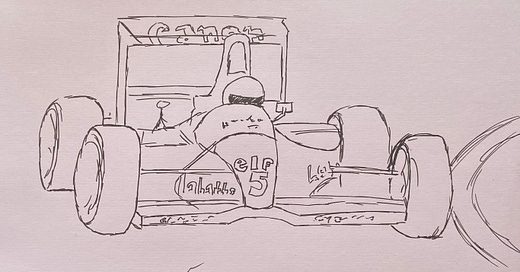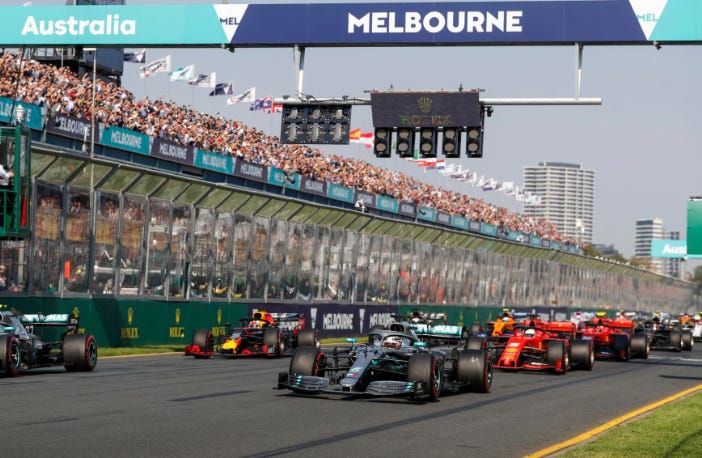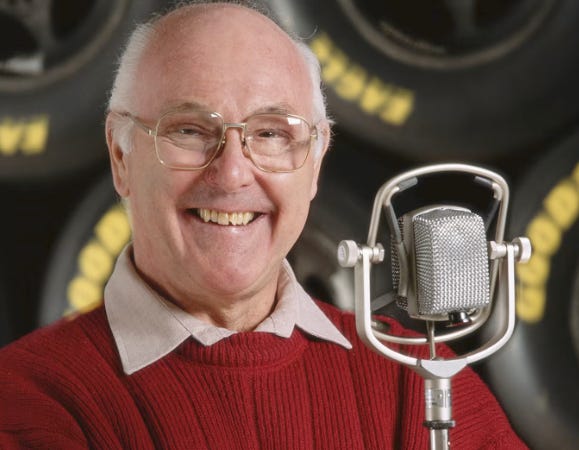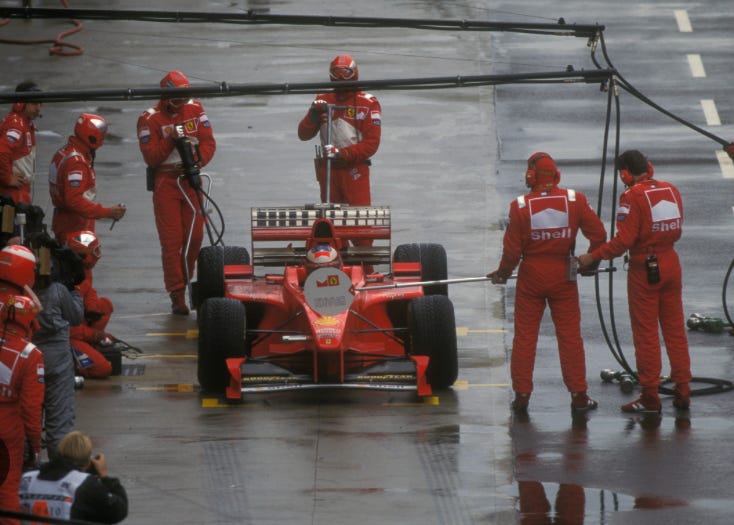Kings of Speed
Formula One is one of those divisive sports where people either seem to be in the love it or hate it camp, with little wiggle room in between. Super fans go nuts for it and will talk about the advances in technology, the thrill, the glamour, the speed and the noise and smell for hours. Detractors will say that the drivers are only good these days due to the technology in the cars and that having the same people win all the time is boring, that there is far too much predictability since pit stops changed (albeit in the name of safety), that it is tedious watching cars go round and round for 70 odd laps, often with very little in the way of meaningful overtaking action going on and that there is far too much in the way of predetermination and team orders.
I am one of those rare few that do indeed sit somewhere in the middle and can appreciate the arguments presented by both sides. I consider myself a fan and not a super fan. Given the opportunity I will watch most races in a season but won’t pull my hair out if I miss one.
I agree that there is nothing quite like watching these men (and hopefully sometime soon, women) taking their lives into their own hands, hurtling round tracks and navigating corners at ridiculous speeds all whilst sat literally inches from the ground in what essentially amounts to a fibreglass shell. I can also appreciate the glitz and the glamour that comes with support, the celebrity/playboy lifestyle that some of the drivers choose to live and the exclusivity that comes from being part of a sport that is so expensive to be involved in.
In terms of technology, there is no arguing that there have been tremendous advances in a relatively short period of time, particularly concerning safety (with things like the HALO already having proved to make a huge difference). It is also incredible that many things concerning how the car is running can now be adapted with the press of a button without the car having to even come into the pits although this may also be seen as a detriment to racing and tactics.
And yes, the noise and the smell is absolutely invigorating, something I can attest to having attended the Grand Prix in Melbourne, Australia when I was there in 2008. There really is nothing like watching 20 cars go roaring by at 200 miles per hour.
However, I also see the other side. I feel that the racing has indeed become quite predictable and that having a superior car is a fast track to dominance, particularly highlighted by the performances in recent years of firstly Lewis Hamilton and then Max Verstappen. Yes, having a good car was also a benefit in the past, but advances in technology and engineering have meant that this is even more the case and that, barring natural impediments such as weather, there are only ever really a very small handful of drivers who are able, let alone likely, to win any given race.
It probably is true that there is less chance of error and less tactical ingenuity that can be used since pit stops became only about changing tyres and no longer about refuelling too, but this was done purely with safety in mind after a number of incidents involving fire so is a non-argument.
In terms of the overtaking, I think it very much depends on the track that is being raced. Particular circuits such as Monaco don’t allow for much overtaking to happen due to the narrowness created by being a street circuit. I remember becoming particularly frustrated with David Coulthard sitting lower down the field one year essentially just going round and round behind lesser cars and wondering why he didn’t just overtake them. I realise now that the simple truth is that he couldn’t as there wasn’t a clear opportunity. Great drivers of times gone by like Senna, Hunt or Schumacher may have taken a chance and tried to dive through a small gap but the odds of success in this are very slim and the sport has evolved to a point where long term season goals and the accumulation of points are more important than trying to win every race. In general terms though, it seems that the governing body have actually tried to increase opportunities for overtaking due to the use of the DRS system. The problem with this comes that you need to be within a second of the car in front to use it and, as we have already discussed, certain cars are too fast and can escape before this is possible. On the flip side of this, there are also now stringent track limits rules which means that drivers can no longer take the extra few inches needed to make an overtake count at times. Many will feel hampered in their efforts by this.
Finally, in terms of team orders, I am completely in the camp that can’t stand them. I understand that there is a team element to the sport and also that there is a constructor’s championship to win as well as an individual one, but watching cars slow down to let team mates pass completely goes against the spirit of racing in my opinion. The fastest and best racer on the day should be the winner, barring accident or break down, and that should be that.
As a child I distinctly remember sitting on the couch on a Sunday afternoon (usually just before Football Italia), listening to the iconic riff of ‘The Chain’ by Fleetwood Mac (see the end of this article for more) and then being entranced watching the cars zipping around the tracks and marvelling at the closeness of the racing and manoeuvres. My dad would always watch the start and then pop in and out from whatever garden job he happened to be doing to check on how it was going (it’s not a bad sport for him like that as he can’t sit still anyway, a bit like cricket). It was nice that we were, and still are, able to share this interest (although we haven’t always agreed on the drivers and teams that we follow!) and I’m pretty sure this played a big part in me enjoying the sport.
I also really enjoyed how the differing personalities of the drivers became apparent whilst they were on the track as well as off it. Some were naturally more cautious and some just went for it. It was past the playboy era by the time I started watching but I generally liked the Brits - Mansell, Hill, Coulthard, Irvine(potentially the last of the true playboys), Button and currently Norris, although never Hamilton (just not my cup of tea) - but I also liked those drivers who liked to take more risks, my favourite ever being Senna. The Brazilian was a magician and, although I missed his best days, I could still appreciate his genius. I also now (although I didn’t at the time) greatly respect the determination and drive to win displayed by Michael Schumacher. In terms of teams, I loved Williams and Jordan (I always felt they brought an aspect of fun to the sport) and appreciate the longevity of some of the smaller teams like Sauber (although it has been through a number of different guises). My favourite was always Ferrari though - the beautiful red whipping round the track was always a sight to behold.
What really drew me in though was the commentary of the incomparable Murray Walker. To this day, I have still never heard anyone convey as much excitement, passion and emotion into their delivery and explanations of what is taking place. From his famous opening line of “Go, go, go!” Murray made you want to keep watching and gave everything an added edge. He drove the appreciation of what the drivers were doing and helped to build an understanding of rivalries between the likes of Senna and Prost or Hill and Schumacher (more on them shortly). He would also often get so excited with what was going on that he would struggle to get out what he was trying to say leading to famous quotes such as “And now excuse me while I interrupt myself,” which kind of sums up his style perfectly.
A while later, Martin Brundle was added as his partner, who brought a counterbalance to the mania with his calm delivery, detailed analysis and inside knowledge. From the British Grand Prix at Silverstone in 1997, he also brought with him the grid walk, which is now an established and much loved feature of every race broadcast. Being down on the grid right before the start gives the viewer a sense of the chaos that occurs in the build up but also an insight into the minds and emotions of the driver, as well as a glance at the celebrity and glamour of the sport. It changed the rules on what could be done in sports broadcasting and more in depth analysis and insight into the minds of athletes at key points has followed elsewhere too.
Speaking of Silverstone, this weekend is the 2024 edition of the British Grand Prix, and it was also announced earlier this year that the circuit will remain the home of that race until at least 2034 which is good news.
Over the years there have been some wonderful moments at Silverstone that have stuck in my mind. The first was that of Nigel Mansell during his march to the title in 1992. He was brilliant that day and won with a huge lead over his teammate Patresi to become the most winning British driver ever to that point.
The race of 1995 was also very memorable for a number of reasons, firstly it was won by one of those uncelebrated Brits, Johnny Herbert. Herbert had a solid career for some mid-table teams but in this season had been lucky enough to get a race for Benetton, who were at the top of the pack. He was very much the number two to Schumacher but took advantage of others’ troubles to win here. Said troubles are the reason that most remember this race, a clash between Schumacher and title rival Damon Hill (not for the last time). Hill had lost his lead of earlier in the race to his nemesis but was catching fast. He tried to overtake down the inside of a corner, braking late but Schumacher came back across and cut him off, taking both of them out in the process. It wasn’t totally obvious who was to blame on this occasion but Herbert wouldn’t have cared as he moved on to victory.
That man Schumacher was at the centre of more controversy in 1998 when, now at Ferrari, he was battling for the title with Mika Hakkinen. Due to rainy conditions, Hakkinen had let a big lead slip and Schumacher overtook him towards the end. However, Ferrari were then told that the German needed to serve a 10-second penalty for an illegal overtake earlier in the race. What was not specified was whether this time was to be added on or served in the pits so the team brought him in on the last lap, knowing that by the time he reached the garage he would have already technically passed the finish line therefore being declared the winner before actually serving the penalty. The other teams were in uproar but the stewards couldn’t prove anything illegal had been done so the decision stood.
Lewis Hamilton has won more British Grand Prix than any other driver with eight wins and his first was in only his second season in 2008. In another wet race, Hamilton took the lead on Lap 5 and never really relinquished it, aided by his team making some smart decisions about tyre choice along the way. This was the starting point of a love affair between driver and circuit.
My final Silverstone memory is another one featuring a Hamilton victory, although this time in far more dubious circumstances. The 2021 season was notorious for the battle between Hamilton and nemesis Max Verstappen (I will write another article based solely on this in the future) and the two men swapped the title lead between them over the course of the year. At Silverstone, Verstappen had taken pole and Hamilton was next to him in second. As the lights went green, Hamilton was pushing hard and a few corners in, tried to come down the inside, Verstappen seemed to have given him space but as he came back across to take the corner, Hamilton clipped his rear wheel sending him spinning off the track and out of the race. During the break while Verstappen’s car was recovered, Hamilton’s Mercedes team made repairs to his car that allowed him to go on and win and get a valuable jump on his rival in the title race.
There will be lots of British interest in this year’s race with McLaren’s Lando Norris currently pushing Verstappen very hard in the title race and George Russell having won recently as well. Hamilton is still about as well, and we know this is a favourite track, so you never know what will happen. Enjoy watching.
N.B. Writing about ‘The Chain’ earlier on got me thinking about some of my favourite ever BBC TV sport theme tunes (no one else has done it better in my opinion). I have listed some of these below with links so you can revel in a blast from the past too. Enjoy.
Formula 1 - Fleetwood Max ‘The Chain’
As mentioned above, a true classic.
Wimbledon - Keith Mansfield ‘Light and Tuneful’
The sound that instigates the start of the British summer, as bouncy as the balls that are used in the tournament itself.
Grandstand - Keith Mansfield ‘Grandstand’
Another brilliant childhood blast from the past. Instantly brings back memories of sitting at my Grandpa’s on a Saturday afternoon, awaiting the entrance of super suave Des Lynam.
Test Match Special - Booker T and the MG’s ‘Soul Limbo’
Brings the viewer straight to the Caribbean and inspires thoughts of those great West Indies teams of years gone by. Another one that makes me think of summer.
Snooker - Doug Wood ‘Dragracer’
A theme far more lively but just as dramatic as the snooker can often be.
Golf - The Power Pack Orchestra ‘Chase Side Shoot Up’
Always makes me think of the great Peter Alliss and his wonderful commentary over the years. His whispered tones were the opposite of Murray Walker’s hyper enthusiasm. Brilliant.
Match of the Day - Barry Stoller ‘Match of the Day’
My own personal favourite. Memories of staying up late on a Saturday as a boy to watch all of my favourite players in action.
If you enjoy my writing here and want to access more football content, please have a look at my writing on the Football4Cast where we are currently concentrating on all things Euro 2024.








